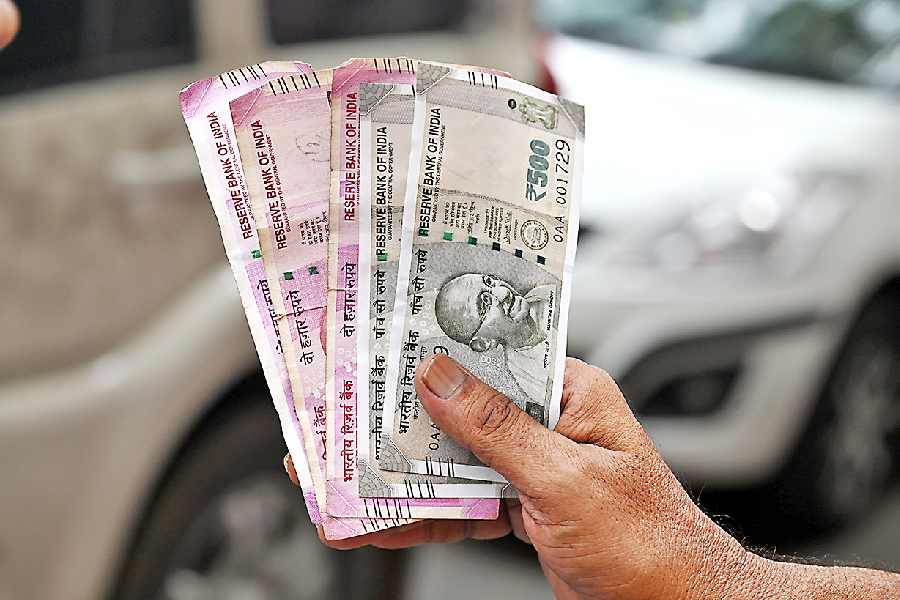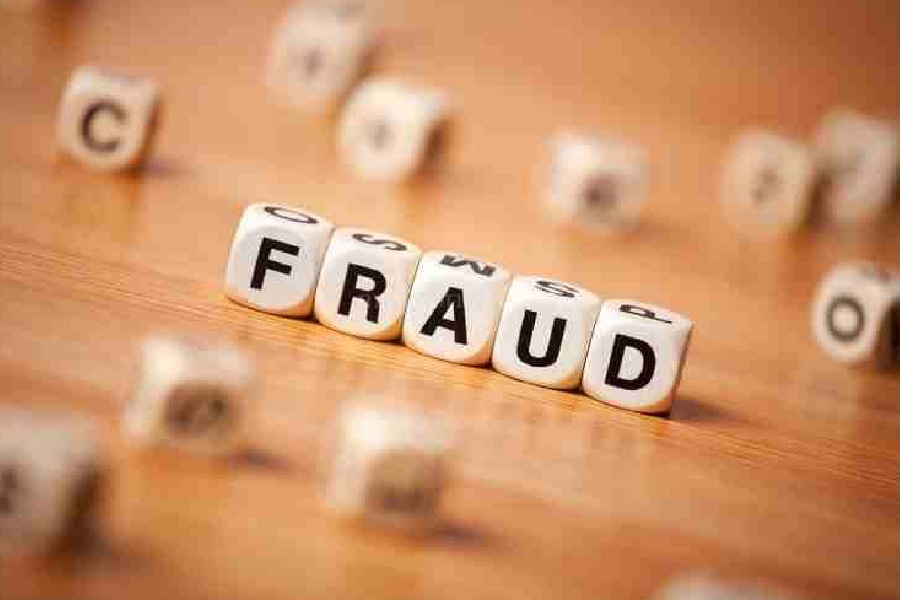Many Kolkatans who went to banks on Tuesday to convert Rs 2,000 notes into lower denomination ones were told to deposit the money if they had an account.
If they did not, they were told to open one.
Most banks that exchanged the “high-value note” insisted on an identity and address proof.
From Tuesday, banks were supposed to exchange these notes without insisting on any sort of identification.
According to the Reserve Bank of India guidelines, the high-value notes can be converted at any bank till September 30, even if the person with the notes does not have an account there.
The Rs 2,000 notes continue to be treated as legal tender but it is unclear whether those would be withdrawn when the window for conversion is slammed shut.
The Telegraph spoke to a number of people who had gone to banks to get the notes exchanged. Many of them were not comfortable sharing their names with a media outlet.
Missing were serpentine queues, which had become a common sight outside banks in the wake of demonetisation.
In over a dozen banks this newspaper visited, there was no dedicated counter for the deposit or exchange of Rs 2,000 notes.
Here’s what we saw on Day One, at banks and other places.
Exchange vs deposit
Many banks persuaded people to deposit the notes instead of exchanging them.
The Charu Market branch of a nationalised bank in south Kolkata had three counters. One of them handled exchange and deposit of Rs 2,000 notes, apart from being involved in other cash operations.
This newspaper interacted with a senior citizen and a young man who had come to exchange Rs 2,000 notes. The senior citizen was apparently told the branch was “short on currency notes”.
“The official at the counter asked me to deposit the money since I am an account holder. I did as he asked. But I needed some cash,” he said.
The other person did not have an account with the bank. He was told to deposit the notes or get them exchanged at the bank where he has an account.
“We are not refusing to exchange the notes. If someone insists, we have to exchange. But since there is no need for identity and address prooffor an exchange, it is almost impossible to trace the person. So, to be on the safer side,we are encouraging deposits. We are also encouraging people to open an account with us,” said the manager of the bank.
An official of the Hazra Road branch of a nationalised bank in south Kolkata said they would “give preference to account holders” while exchanging notes. “Please visit the bank where you have a salary account,” an official told a person who went to exchange a couple of Rs 2,000 notes.
Even the banks that exchanged notes received from non-account holders asked for documents.
The Bhowanipore branch of a nationalised bank was accepting Rs 2,000 notes. “If you are not an account holder, we need a document such as the passport, Aadhaar card, voter card or driving licence. This is for internal purpose of the bank,” said an official.
Ditto at a private bank near India Exchange Place in the BBD Bag area of central Kolkata.
Less than a kilometre away, another private bank had a dedicated counter to exchange of Rs 2,000 notes. But in the 15-odd minutes this newspaper spent there, two persons were told that they could not get Rs 2,000 notes exchanged for want of KYC (know your customer) documents.
A few people who are in the business of exchanging high-value notes, against a commission, said the urgency to get rid of Rs 2,000 notes was yet to pick up.
The rate to exchange a Rs 2,000 note varies from Rs 50 to 200, depending on the condition of the note.
Help here, hassle there
A fuel pump on Ganesh Chandra Avenue in central Kolkata had a notice pasted at the entry. It said Rs 2,000 notes would not be exchanged for small purchases.
“Many two-wheeler riders have been coming to buy fuel worth Rs 100 or Rs 200. Initially, we gave them change. But now, it is becoming difficult to arrange for so many smaller denomination notes. Thus, the notice, said the pump owner.
The owner of a liquor store, however, said he had no problem accepting Rs 2,000 notes even for small purchases.
“It helps. Carrying high-value notes to the bank for deposit is much easier than carrying notes of smaller denominations,” he said.

